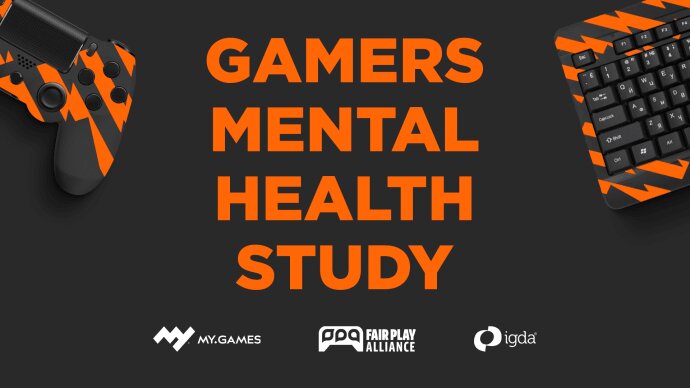MY.GAMES in partnership with IGDA and the global coalition of gaming professionals and companies Fair Play Alliance (FPA), announced the results of a global survey conducted at the end of 2020. More than 21,000 players aged 14 and up took part in the international survey, conducted across Europe and the USA. The study was held with players of MY.GAMES PC titles Revelation, Skyforge, and Warface, as well as through the partner organisations FPA and IGDA. The majority of respondents who took part in the survey identified they play games weekly.
The survey’s goal was to assess how aware gamers are about mental health, and how often they experience problems related to it. Respondents were also asked to evaluate their own mental health as they remember it before the pandemic, several months into lockdowns, and presently. The survey also delved into cyberbullying and toxic behaviour in online games.
“MY.GAMES has millions of registered users, for whom virtual space has become one of the main platforms for communication and recreation during the pandemic. The change in the usual way of life and the increased level of stress-all inevitably left its mark on the players, whose care is our direct responsibility,“ commented Elena Grigoryan, CMO of MY.GAMES. ”The study of the psychological well-being of our audience, following the results of the pandemic, is an important step designed to draw attention to the topic of mental health.”
Out of all countries surveyed, UK gamers are the most informed on mental health matters. 79% of UK gamers polled are well-aware of what mental health is, with only 9% answering they are not. The percentage is higher than all other polled countries including Russia, USA, Germany, France and Spain. Most gamers surveyed in the UK (65%) said interacting with other players gave them a stronger feeling of being connected to others during the pandemic.
Globally taking care of one’s mental health remains a priority, with 91% of respondents answering it is important to look after their mental health.
“Across the world, we have seen that multiplayer games have helped ease the pains of social isolation for those who enjoy video games. Video games are an important tool for connecting with each other in these difficult times, “commented Renee Gittins, Executive Director of IGDA.
When asked to evaluate the state of their mental health pre-and post-COVID lockdowns, 66% said their mental health was stable before the pandemic, 57% said it was normal in the early months of lockdowns, and 59% said it was normal presently.
One in three (32%) of UK gamers said they experienced anxiety and other stress-induced disorders at least several times a year. In the UK 38% of gamers said they sought professional mental health help more than once during their lifetime, with 64% answering they would seek help when needed. Although aware of the importance of good mental health, UK gamers were also reticent to seek help. 74% of respondents were reluctant to see mental health professionals, thinking their problems were not too serious or that mental health services are a waste of money.
Almost all respondents (93%) said they played multiplayer games, with most (84%) open to communicating with other gamers during play. The majority of gamers were already talking to each other, with only 4% answering they began doing so during lockdown. 68% of players said they were communicating with each other the same amount as before the global lockdowns, while 25% said they started communicating more. The importance of friendships has increased, with 38% of gamers now spending more time hanging out with friends in games.
“Having spaces to connect is more important than ever during shelter-in-place,” shared Carlos Figueiredo, the Executive Director of the Fair Play Alliance. “The core of connection is healthy gameplay and more importantly, healthy players. We’re committed to supporting game developers and platforms in reducing disruptive behaviour and increasing players’ wellbeing.”
Interacting with other players during the pandemic was mostly connected with positive emotions, like feeling safe, remaining connected, and that it is OK to make mistakes in games. However, many gamers noted they occasionally encountered insults (57%), trolling (53%), and aggressive behaviour (52%). Toxic communication in-game remains an issue, with one in ten (12%) answering that online interactions with other players affected their mental health negatively. While still an important issue, serious instances of cyberbullying including humiliation, harassment, exclusion, and threatening behaviour were noted far less often by those surveyed.
“Video game developers must make note that toxicity in-game communities is still an issue for our industry. Moderation systems, positive culture cultivation, and exclusion of the worst offenders is necessary to allow everyone to enjoy gaming. Management of communities is even more important with the increase in online gaming and its importance in combating social isolation,” concluded Renee Gittins, Executive Director of IGDA.
If you enjoy games and gaming and want more NEWS from the Gaming World Click Here







